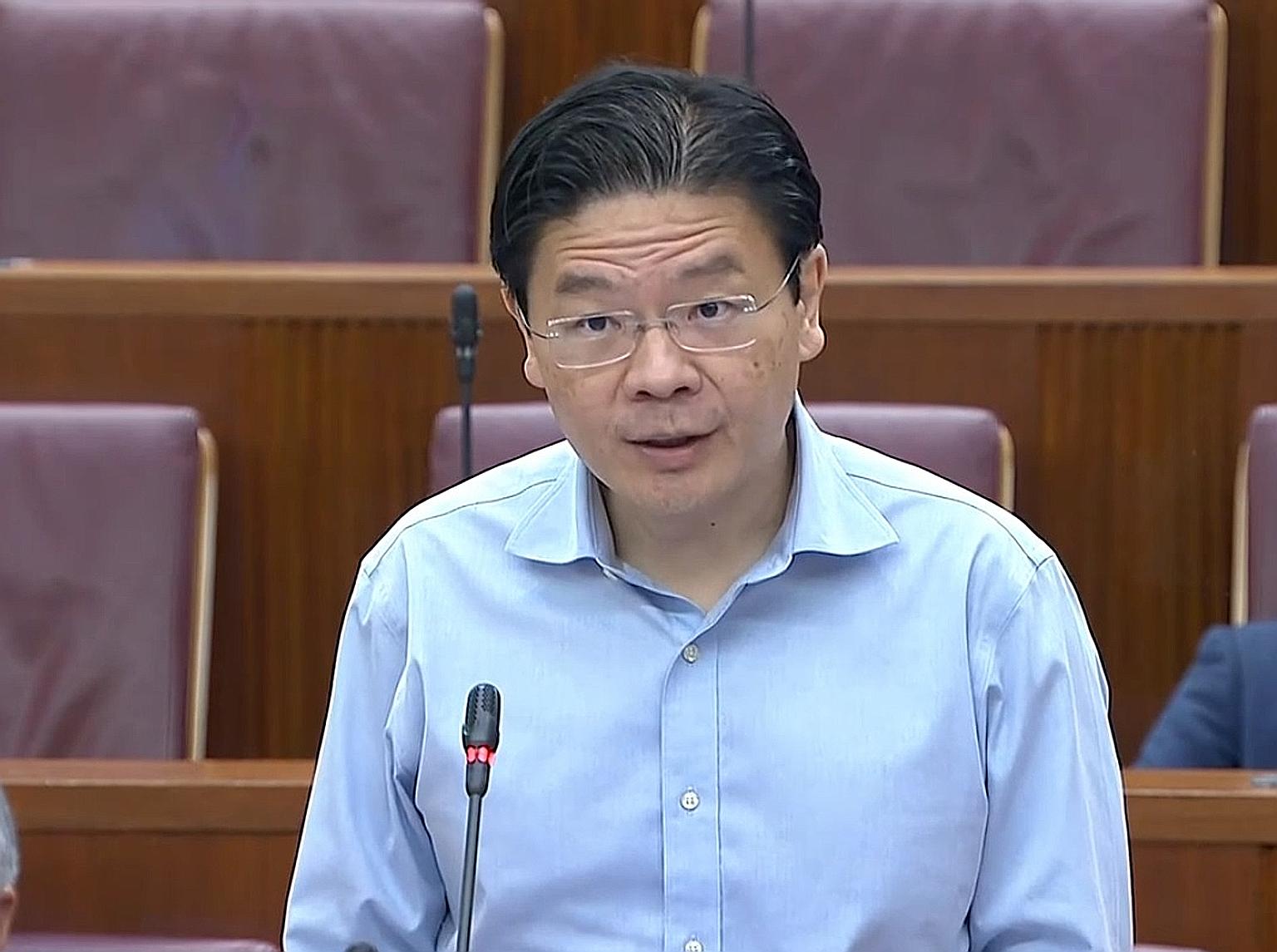Parliament Coronavirus
Border measures have cascading effect on S'pore economy: Wong
One concern is firms forced to close amid manpower crunch, leading to job losses
Sign up now: Get ST's newsletters delivered to your inbox

EDUCATION MINISTER LAWRENCE WONG.
PHOTO: GOV.SG
Manpower shortages caused by tighter border controls will not be confined to the construction, marine and process (CMP) sectors, but will have a "cascading effect" on the Singapore economy, Education Minister Lawrence Wong told Parliament yesterday.
Any company seeking to bring in workers from higher-risk countries could wait more than six months for entry approval, he said in an update on the Government's response to Covid-19.
"Our big concern is that if companies continue to face difficulties or are forced to close, we could then end up with higher unemployment and job losses for Singaporeans."
Stresses will also be felt in society, he said. Singaporeans will find it harder to reunite with their families abroad, and families applying for new foreign domestic workers to care for their children or the elderly will have to wait at least two months, he added.
Mr Wong, who co-chairs the multi-ministry task force tackling Covid-19, cited these consequences of keeping the country's borders tight as he addressed questions from several MPs about Singapore's border measures.
For instance, Mr Yip Hon Weng (Yio Chu Kang) had asked how the Health Ministry would strengthen its measures to prevent a Covid-19 spread from imported cases.
The authorities have implemented more stringent border measures this month. The stay-home notice (SHN) period for those from higher-risk countries or regions has been lengthened to 21 days, up from 14 days, among other steps.
While there is no medical evidence that new Covid-19 variants have a longer incubation period, there is always a "very small tail risk" of such cases, said Mr Wong.
This was why Singapore moved to the tighter, 21-day SHN regime for travellers from all higher-risk countries during this period of heightened alert, he added.
While one option is to shut borders - an approach that has been taken by larger or resource-rich countries - Singapore is in a "completely different position", he said.
"We are a little red dot fully plugged into the world. Trade and travel are our lifeblood - for us, these are not just good to have; they are existential issues.

"They are how, as a country, we earn a living and remain relevant to the world," he added, noting that travel restrictions have been slowly lifted in a controlled and safe manner after the country exited the circuit breaker in June last year.
Before the pandemic, Singapore had 200,000 travellers going through Changi Airport every day, either on transit or entering Singapore, he said. This number plummeted during the two-month circuit breaker when borders were closed temporarily.
Some travel restrictions were later eased. By November last year, there were about 820 arrivals a day.
Between December last year and March, there were about 1,200 travellers who arrived at Changi Airport a day, he added.
One reason for this increase is the arrival of more migrant workers in the CMP sectors, as well as foreign domestic workers.
This group was also the largest contributor to Singapore's imported cases, at about 40 per cent over the past six months, although a tighter screening and quarantine process was implemented even as the numbers went up, he said.
But this inflow of workers for the CMP sector is still unable to meet the country's needs to date.
"Because every day, every week, every month, many migrant workers have left to go back to their home countries. Whatever numbers we are bringing in barely replace those who have left," he said.
The Government will do more to help this sector, Mr Wong said, citing the recently announced higher foreign worker levy rebates.
He also said that while there has been a recent spike in community cases, this is not the first time that Singapore has had to deal with the issue.
Compared with a year ago, the nation's capabilities have strengthened significantly, and testing capacity is now much higher. About 35,000 swabs were tested daily in the past week, and there is the capacity to test up to 73,000 people per day, and even more with pooled testing.
"TraceTogether and SafeEntry are more pervasive, which means we can contact-trace and ring-fence cases more quickly," he said. "We are also regularly testing persons in higher-risk settings and undertaking surveillance testing for symptomatic individuals, which is how we uncovered many of the cases reported over recent days."
Vaccination is a major game changer, he added, with most of the older population as well as healthcare and front-line workers having had their jabs.
"This puts us in a much safer position," he said.


